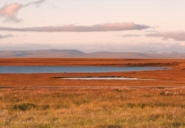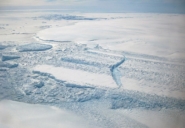
Wetlands like peat bogs and marshlands, and freshwater systems like rivers and lakes, are set to become an even larger source of the powerful greenhouse gas methane in the
/ read more


Wetlands like peat bogs and marshlands, and freshwater systems like rivers and lakes, are set to become an even larger source of the powerful greenhouse gas methane in the
/ read more
The kilometres-thick ice sheets in Antarctica could melt much more rapid than first thought. New findings from NESSC-climate researchers show that between 17 and 15 million years ago, the
/ read moreJob description: The Utrecht Department of Earth Sciences currently seeks a highly-motivated, high-potential applicant for a position as a postdoctoral researcher to develop a model for methane hydrate dynamics. The research
/ read more
On Sunday December 17th, the annual NESSC Christmas lecture takes place. In this year’s lecture NESSC-researcher Mike Jetten, professor of microbiology at Radboud University, Nijmegen, will talk about his research on
/ read more
NESSC-researcher Appy Sluijs has been awarded an ERC Consolidator Grant worth 2 million euros to explore the impact of variations in CO2-concentrations on the climate millions of years ago.
/ read more